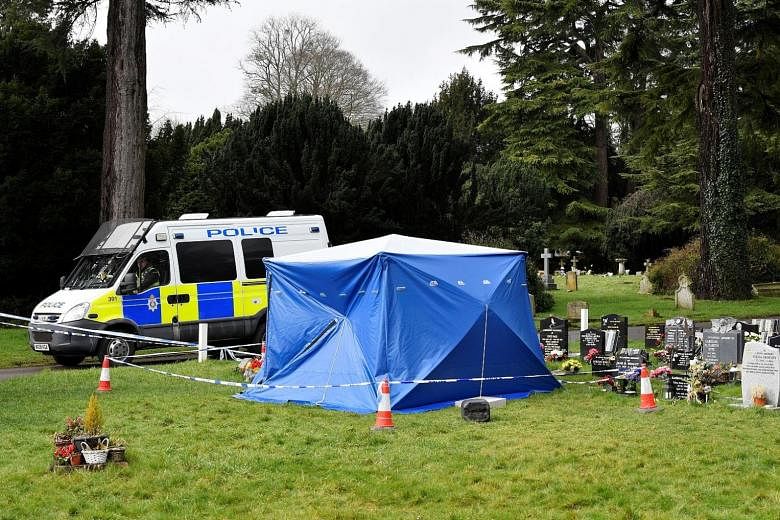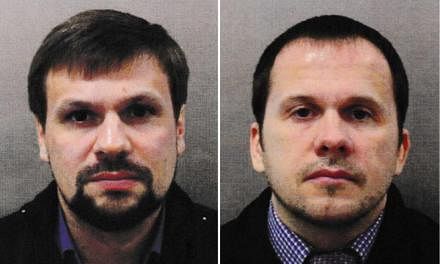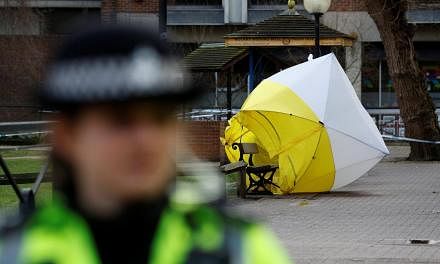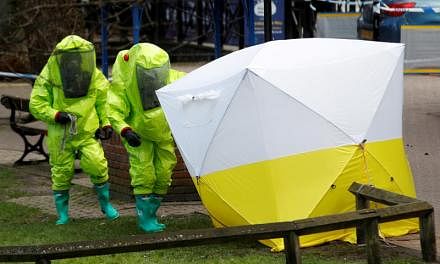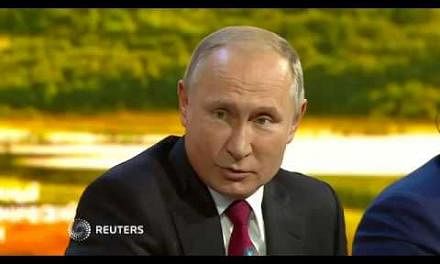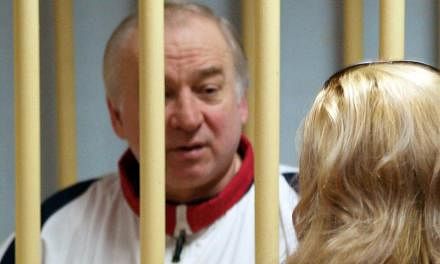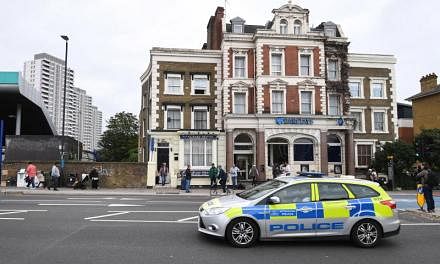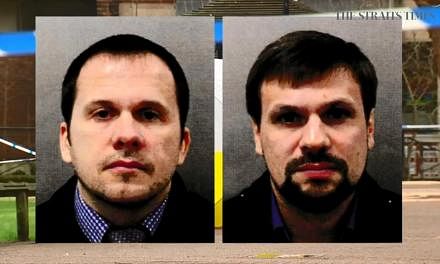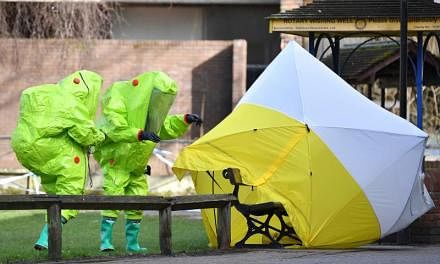MOSCOW • The United States, Germany and France formally backed Britain's claims of likely Russian links to a military-grade nerve toxin attack against a former spy, calling it the "first offensive use of a nerve agent" in Europe since World War II.
The joint statement from the leaders of France, Germany, the US and Britain signalled another step in mounting international pressure on Russia over apparent ties to the assault.
The statement said the nations shared the view of British investigators of Russian ties to last week's attack against a former double agent and his daughter.
There was no "plausible alternative explanation", the statement added, noting Russia's "failure to address the legitimate request by the (United Kingdom) government further underlines its responsibility".
"It is an assault on UK sovereignty, and any such use by a state party is a clear violation of the Chemical Weapons Convention and a breach of international law," said the statement, released by the office of the British Prime Minister.
"It threatens the security of us all," it added, without spelling out any possible further reprisals by Britain and its allies.
US President Donald Trump yesterday said "it looks like" Russia was behind the poisoning of former double agent Sergei Skripal.
He said during a meeting at the White House with Ireland's Prime Minister Leo Varadkar that he had been in contact with British Prime Minister Theresa May about the incident, calling it "a very sad situation" that the US is taking "very seriously".
The next move in the deepening stand-off could come from Moscow, which says it knows nothing about the poisoning.
Deputy Foreign Minister Sergei Ryabkov said yesterday that neither Russia nor the Soviet Union had run a programme to develop the Novichok nerve gas which Britain says was used in the attack, the Interfax news agency reported.
Foreign Minister Sergey Lavrov was quoted as saying that Russia would soon respond to Britain's decision to expel 23 Russian diplomats.
Mr Lavrov said Moscow did not have a motive to attack the Russian double agent, but suggested other players could use the poisoning to "complicate holding the World Cup" in Russia this year.
He charged that the British government is keen to "deflect attention" from its troubles with Brexit.
Mr Skripal and his daughter Yulia remain critically ill in hospital. They were found unconscious on a bench in the city of Salisbury on March 4.
Mrs May yesterday visited Salisbury, where police investigators in chemical protection suits and the army have been searching for evidence as well as removing all traces of the nerve agent.
She has directly accused Russian President Vladimir Putin of being behind the attack.
Kremlin spokesman Dmitry Peskov said Mr Putin had met members of his national security council yesterday for a "detailed discussion" on the situation with Britain.
In Brussels, Nato Secretary-General Jens Stoltenberg condemned what he said was a "reckless pattern of Russian behaviour over many years".
"We do not want a new Cold War, and we do not want to be dragged into an arms race. An arms race has no winners. It is expensive, it is risky, it is in nobody's interest," he said.
Mr Stoltenberg, who will meet British Foreign Secretary Boris Johnson on Monday in Brussels, also accused Moscow of a "blurring of the line between peace, crisis and war", which he said was "destabilising and dangerous".
While Mr Stoltenberg stressed that there had been no request from London to activate the Western military alliance's mutual defence clause, he said that Russia must be deterred.
Besides expelling the diplomats - the biggest such move in 30 years - suspending high-level contacts and cracking down on Russian criminals and dirty money, Britain will invest £48 million (S$88 million)in a new chemical weapons defence centre, said Defence Secretary Gavin Williamson.
WASHINGTON POST, REUTERS, AGENCE FRANCE-PRESSE
